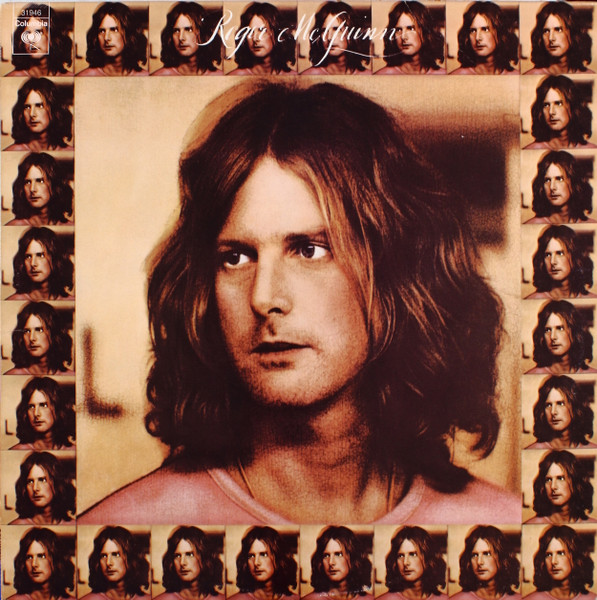 Maybe Roger McGuinn knew the Big Byrds Reunion wasn’t going to amount to much, as he didn’t seem to contribute much in the way of songwriting to that collective. After all, he had a solo career to kick off, and he did so mere months later with his self-titled debut. More to the point, he made sure to include all the music styles he insisted were of interest to him.
Maybe Roger McGuinn knew the Big Byrds Reunion wasn’t going to amount to much, as he didn’t seem to contribute much in the way of songwriting to that collective. After all, he had a solo career to kick off, and he did so mere months later with his self-titled debut. More to the point, he made sure to include all the music styles he insisted were of interest to him.The folkie plaint of “I’m So Restless” is sheer parody, wherein he asks Bob Dylan, John Lennon, and Mick Jagger (in that order) how he should comport himself. He even got Dylan to blow harmonica on the track. For severe musical whiplash, it’s tough to beat “My New Woman”, which is basically a full Byrds reunion in a strange meter with jazz sax man Charles Lloyd honking freestyle throughout. Roger likely found “Lost My Drivin’ Wheel” on a Tom Rush album, but he did try it first with the Clarence-era Byrds. Charles Lloyd returns for “Draggin’”, which is about a drag race—complete with Bruce Johnston adding Beach Boys-style “oohs”—but upgrades it to airplanes, to the passengers’ collective horror. “Time Cube” continues the Moog experiment left dormant at the end of The Notorious Byrd Brothers, but these days it just jars against the banjo, and we always think a kettle is boiling in the background.
A timely tribute to hijacker D.B. Cooper, “Bag Full Of Money” sounds the most like countrified Byrds, and also dates from as far back as Farther Along. “Hanoi Hannah” tries to be a cutting blues about a soldier in Vietnam, but has a lot of timing issues. A children’s choir is almost never a good idea on any album, and it mars the cover of Spooner Oldham’s “Stone”, featuring the man himself on piano. Spanky MacFarlane (the singer, not the Little Rascal) joins in on the sea chanty “Heave Away”, and we stay in the islands for “M’Linda”, which sounds like something Stephen Stills would try to ape on his albums. His arrangement of “The Water Is Wide” turns the melody inside out, but David Crosby’s harmony keeps it just this side of adult contemporary.
Ultimately, Roger McGuinn is too all over the map to really impress, though there are some good parts. Occasional collaborator Jacques Levy is credited throughout, so some of the credit and blame can be shared. Like most of Roger’s ‘70s output, the album was largely ignored in the digital era, though several tracks were included on a 1991 compilation. Predictably, it was the Sundazed retro label that finally gave it a CD upgrade, complete with liner notes and two extra tracks: a solo strum through the traditional “John, John” and a full band version of Jackson Browne’s “Jamaica Say You Will”, this time where he sings it himself.
Roger McGuinn Roger McGuinn (1973)—3
2004 Sundazed reissue: same as 1973, plus 2 extra tracks
No comments:
Post a Comment